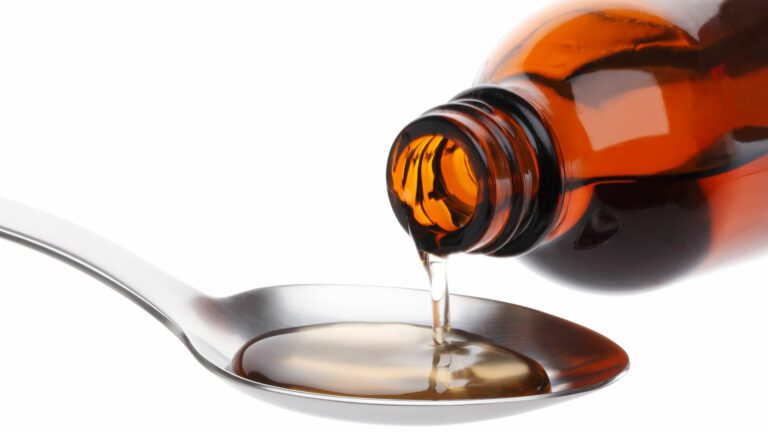
The standards referenced in the article below are out of date as of February 1, 2025. Please refer to ACP’s new standards for up-to-date information.
Since July 2020, prescription-status oral liquids containing codeine have held Type 1 status with the Tracked Prescription Program (TPP Alberta). This means use of a secure TPP Alberta two-part prescription form is required to prescribe these products. Such codeine-containing liquids were moved from Type 2 status due to a concerning increase in the number of forgeries for them (most often Cotridin) reported through the Alberta College of Pharmacy’s (ACP) forgery alerts.
While this change led to an immediate and dramatic decrease in the number of forgeries for codeine-containing cough syrups, the number of pharmacy robberies began to increase. Between September 2020 and August 2021, there were 89 pharmacy robberies in Calgary, compared to just four during the previous 12 months. In Edmonton, there were 49 pharmacy robberies between September 2020 and August 2021, compared to 14 during the previous 12 months.
In response to this trend, ACP collaborated with police services across Alberta and the Alberta Pharmacists’ Association (RxA) on a provincial pharmacy robbery working group. Police indicated that the primary target of robbers was Cotridin, which was then being sold locally on the street and abroad. These robberies have caused significant trauma to pharmacy team members and patients who were in the pharmacy when the robbery occurred. In some cases, pharmacy team members have been physically assaulted during robberies. As well, the diverted drugs affect community members by contributing to the ongoing opioid crisis.
Through recommendations from the working group, ACP amended the Standards for the Operation of Licensed Pharmacies to require all community pharmacies to store narcotics and other high-risk substances in time-delayed safes. Proper use of these safes has led to a significant decrease in the number of pharmacy robberies. However, robberies are still occurring and more needs to be done.
ACP is asking prescribers and pharmacy teams to understand the limited clinical value of codeine cough syrups and expectorants1, and consider the societal consequences of prescribing and dispensing these products. TPP Alberta has reported a reduction in the amount of Cotridin being prescribed since the change in TPP status to Type 1. In 2020, prescribers wrote more than 41,000 prescriptions for Cotridin and more than 6,000 prescriptions for Cotridin Expectorant. In 2021, the number of prescriptions for Cotridin dropped to 5,600 while the number of prescriptions for Cotridin Expectorant dropped to 1,300. So far in 2022, prescribers have written 314 prescriptions for Cotridin—a significant decrease from the two previous years. However, prescribing for Cotridin Expectorant has increased to nearly 2,000 prescriptions so far in 2022, likely due to a recent manufacturer shortage of Cotridin.
Prescribers are encouraged to balance the limited clinical value of Cotridin, Cotridin Expectorant, and other codeine-based cough syrups with the risk of harm to pharmacy teams, their patients, and the community, and recommend or prescribe clinically effective alternate treatments whenever appropriate.
Pharmacies are encouraged to reduce or discontinue their stocking of Cotridin, inform their patients and local prescribers of these changes, and take steps to provide alternative therapies for their patients as needed.
- Canadian Pharmacists Association. (2019). Chapter 1: Acute Cough. Retrieved from https://www.pharmacists.ca/cpha-ca/assets/File/Acute_Cough.pdf ↩︎




